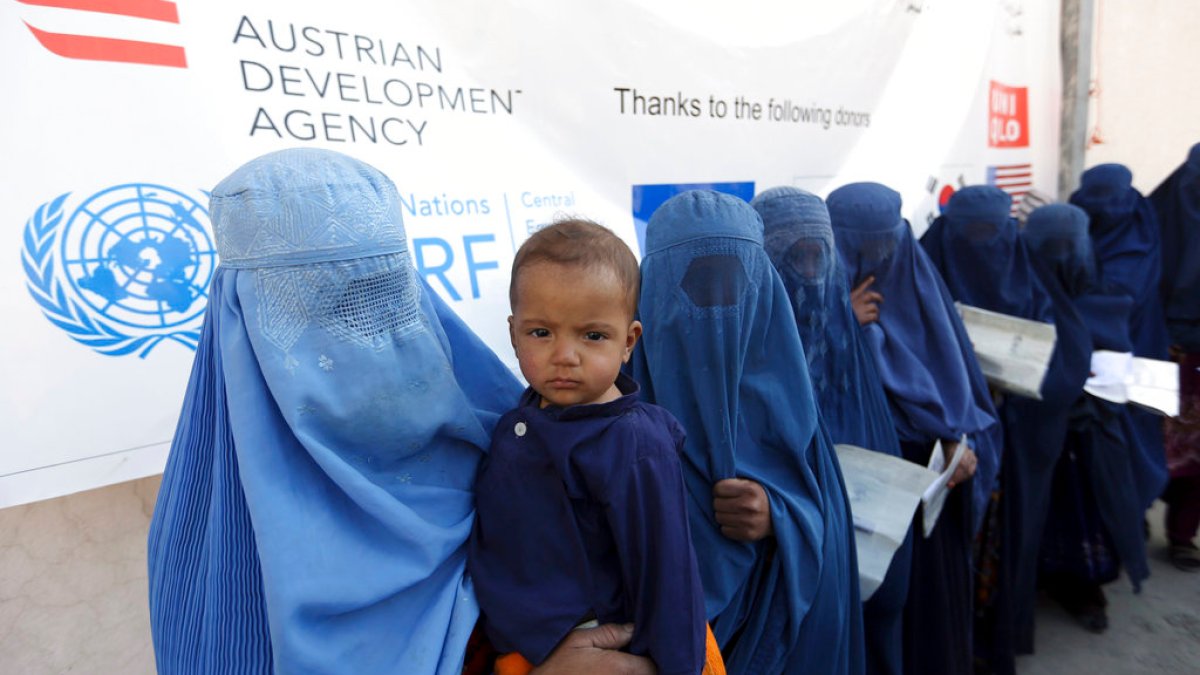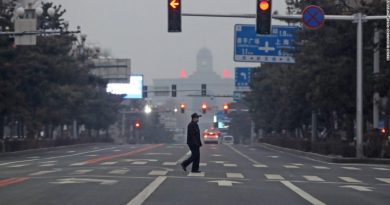UN halts some operations in Afghanistan over women aid worker ban
‘Female staff are key to every aspect of the humanitarian response in Afghanistan,’ UN agencies and aid groups said.
The United Nations has announced that some “time-critical” programmes in Afghanistan have temporarily stopped and warned many other activities will also likely be paused following the Taliban’s ban on female aid workers.
The UN’s Emergency Relief Coordinator Martin Griffiths, as well as the heads of key UN agencies and international aid groups, called on Wednesday for Taliban authorities to reverse their ban on women working in the humanitarian sector and to overturn “all directives banning women from schools, universities and public life”.
“Female staff are key to every aspect of the humanitarian response in Afghanistan,” the UN representatives and aid agencies said in a joint statement.
“Banning women from humanitarian work has immediate life-threatening consequences for all Afghans. Already, some time-critical programmes have had to stop temporarily due to lack of female staff,” according to the statement.
“We cannot ignore the operational constraints now facing us as a humanitarian community,” the statement continued.
“We will endeavour to continue lifesaving, time-critical activities … But we foresee that many activities will need to be paused as we cannot deliver principled humanitarian assistance without female aid workers.”
The decision by #Afghanistan’s de facto authorities to ban women from working in
NGOs is a major blow.We urge them to reverse this directive, and all directives banning women from schools, universities and public life.
Full statement by @iascch
— Martin Griffiths (@UNReliefChief) December 28, 2022
The Taliban-led administration announced the ban on female aid workers on Saturday. It follows a ban imposed last week on women attending universities. The Taliban also stopped girls from attending high school in March.
“No country can afford to exclude half of its population from contributing to society,” said the statement, which was also signed by the heads of UNICEF, the World Food Programme, the World Health Organization, the UN Development Programme, and the UN high commissioners for refugees and human rights.
“We urge the de facto authorities to reconsider and reverse this directive, and all directives banning women from schools, universities and public life,” the statement added.
Separately, 12 countries and the European Union jointly called on the Taliban to reverse the ban on female aid workers and allow women and girls to return to school.
The statement was issued by the foreign ministers of Australia, Canada, Denmark, France, Germany, Italy, Japan, Norway, Switzerland, the Netherlands, the United Kingdom, United States and the EU.
The ban on female aid workers “puts at risk millions of Afghans who depend on humanitarian assistance for their survival”, the statement said.
Four leading global groups, whose humanitarian aid has reached millions of Afghans, said on Sunday they were suspending operations because they were unable to run their programmes without female staff.
The UN statement also said the ban on female aid workers “comes at a time when more than 28 million people in Afghanistan … require assistance to survive as the country grapples with the risk of famine conditions, economic decline, entrenched poverty and a brutal winter”.
The UN agencies and aid groups – which included World Vision International, CARE International, Save the Children US, Mercy Corps and InterAction – pledged to “remain resolute in our commitment to deliver independent, principled, lifesaving assistance to all the women, men and children who need it.”
The Taliban seized power in Afghanistan in August last year. They largely banned education for girls when last in power two decades ago but had said their policies had changed.




